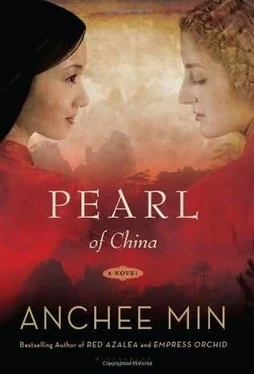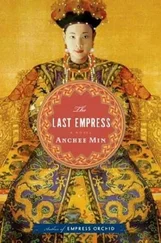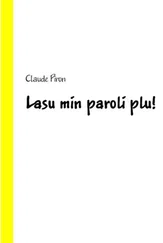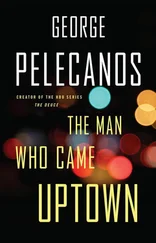Pearl discovered that her servants had been hiding something from her. “Last night,” she came to tell me, “I followed a noise to the back of my house and found a woman living there with her newborn baby. The woman was my age, perhaps younger. Her name was Soo-ching. She told me that she had been living there for six months and had given birth to her son only days before.”
“She begged you to let her stay?” I asked.
“Of course.”
“What did you say to her?”
“I didn’t know what to say. I can’t kick her out. The strangest thing was that this beggar lady named her son Confucius.”
I was not surprised. It could have been my name too. When Papa was a beggar, he decided that if I had been born a boy, he would have named me after Confucius, or Mencius, or the ancient Chinese philosophers Lao Tse or Chuang Tzu.
“Will you publish such stories if I write them?” Pearl asked. “I mean the stories of real people?”
“Personally, I’d love to. But I’m not sure if the newspaper would agree,” I responded.
“Why not?” Pearl asked. “They are moving, human stories. Readers would be interested and the stories might do some good.”
“Yes, perhaps. But the paper has a tradition of publishing only what will inspire, not what will depress. Remember, this is the Nanking Daily, not the Chin-kiang Independent. Our funding is from the government.”
“What is the purpose of a newspaper if not to tell the truth?” Pearl said. “People will get a false picture of what is truly happening in China.”
“Read the alternative papers published by the Communists if you want the truth. I have books by Lu Hsun, Lao She, and Cao Yu.”
Pearl couldn’t wait. She came to my home and borrowed the books I recommended.
Though I continued to attend church regularly, great changes were happening in the outside world, and my job brought me into their midst. For Pearl, her reading soon expanded beyond my recommendations and helped push her marital troubles to the back of her mind. Her enthusiasm returned. She was once again the Pearl I used to know.
***
We discussed works by Lu Hsun. Pearl ’s favorites were The True Story of Ah Q and The Story of Mrs. Xiang-Lin. Although the author’s criticism of society was sharp and original, we didn’t love the stories. Pearl ’s trouble with Lu Hsun was that he depicted his characters as if he were standing on a roof looking down.
“The peasants he portrays are all narrow-minded, stubborn, and stupid,” Pearl pointed out.
“Well, it was considered revolutionary that he even made peasants his subjects,” I commented.
Pearl and I both loved Lao She and Cao Yu. Among their best were The Big House, Full Moon, and The Marriage of a Puppet Master. We favored Full Moon in particular for the author’s sensitivity. The story was about a single mother who was driven into prostitution. Although her daughter tries to avoid following in her mother’s footsteps, she ends up succumbing to the same fate.
Pearl liked the story but resented the novel’s bitter hopelessness. She preferred stories that offered hope in the end, however tragic. “The character must believe in himself, and he must have the stamina to endure.”
“Beautiful, heart-wrenching tragedy has been central to the Chinese tradition for thousands of years,” I reminded her. “Both novelists and readers relish what you call hopelessness.”
“That is not always true,” Pearl challenged. “The novel All Men Are Brothers is the best example. The poor peasants were forced to become bandits. But the novel is filled with energy. There is no bitterness to it. To me, this is the Chinese essence!”
“Chinese critics don’t share your opinion,” I argued. “They say All Men Are Brothers lacks sophistication. They consider it folk art, not literature.”
“That is exactly why things must change,” Pearl shot back. “Everyday life has a power of its own. And it’s important to pay attention to it. Look at Soo-ching, the lady who delivered her son in my backyard! I bet she bit off the umbilical cord like the character Er-niang in All Men Are Brothers! I didn’t see her pity herself. She was ready to go on. That poor lice-infested beggar lady! I think her a worthy subject, even heroic!”
I remembered the first time Pearl and I discussed the Chinese classic Dream of Red Mansion. I was sixteen and had just learned to read. Pearl didn’t like the novel, especially the hero, Pao Yu.
“Have your views changed regarding Dream of Red Mansion?” I asked.
“No. Pao Yu is nothing but a playboy,” Pearl replied.
“By Chinese estimations, Pao Yu is a rebel and an intellectual prince,” I said, smiling. “The popular view is that Pao Yu deserves more respect than an emperor.”
“What do you mean by popular? The people who hold such views are only a tiny minority.”
“Well, that minority rules the literary world.”
“Are you telling me that the majority, who happen to be peasants, don’t count in China?” Pearl was annoyed.
I had to agree with her that it was not right.
Dream of Red Mansion was a classic, Pearl admitted. “But it is an ill beauty, so to speak. It is about escapism and self-indulgence. I am not saying that the novel doesn’t deserve credit for criticizing the feudalism of the time.”
“I am glad that you acknowledge that. It is important.”
“However,” Pearl continued, “the novel, in its essence, reminds me of Goethe’s Sorrows of Young Werther. The difference is that Werther fell in love with one girl, Lotte, while his Chinese counterpart Pao Yu fell in love with twelve maidens.”
“In China, educated men still spend their lives imitating Pao Yu.”
“Drinking clubs and brothels have become the only source of inspiration. What a pity!” Pearl went on. “I think it is a crime that there is no representation in literature for the greater part of the Chinese people.”
Days of drizzle announced the coming of spring. Camellias blossomed. Leaves shone glossy green. Heavy with moisture, massive flowers began to plop to the ground. I was working late at night when I heard a knocking on the door.
It was Pearl without an umbrella. Her hair was drenched and she looked devastated.
“What happened?” I let her in and closed the door.
“Lossing…” Unable to go on, she passed me a piece of wadded paper.
It was a letter, a hand-copied ancient erotic Chinese poem.
“It’s not his handwriting,” Pearl pointed out.
“From a female student, you think? Where did you find it?”
“In his drawer. I went to his office looking for an address. I was writing to his aunt, who had some questions concerning Carol.”
I was stunned. “Do you think that Lossing is having an affair?”
“How could I think otherwise?” Tears welled from her eyes.
“Where is Lossing now?”
“I don’t know.”
“Does he know that you know? How long could this have been going on?”
“I haven’t paid attention to anything else but Carol.”
“Who is this girl?”
“I think I know who she is. Her name is Lotus, a first-year student in the agricultural department. I ran into her several times at Lossing’s office.”
“Is she pretty?”
“I don’t remember… that she was particularly pretty. She was the translator he hired for his fieldwork. He has taken trips with her. I was foolish to trust him.” She took the towel I offered and wiped her face. “I can’t say that I didn’t see it coming.”
I sat down with her and made tea. “What are you going to do?” I asked quietly.
“If I didn’t have Carol, I’d leave now,” she answered. Her eyes became tearful again.
Читать дальше












